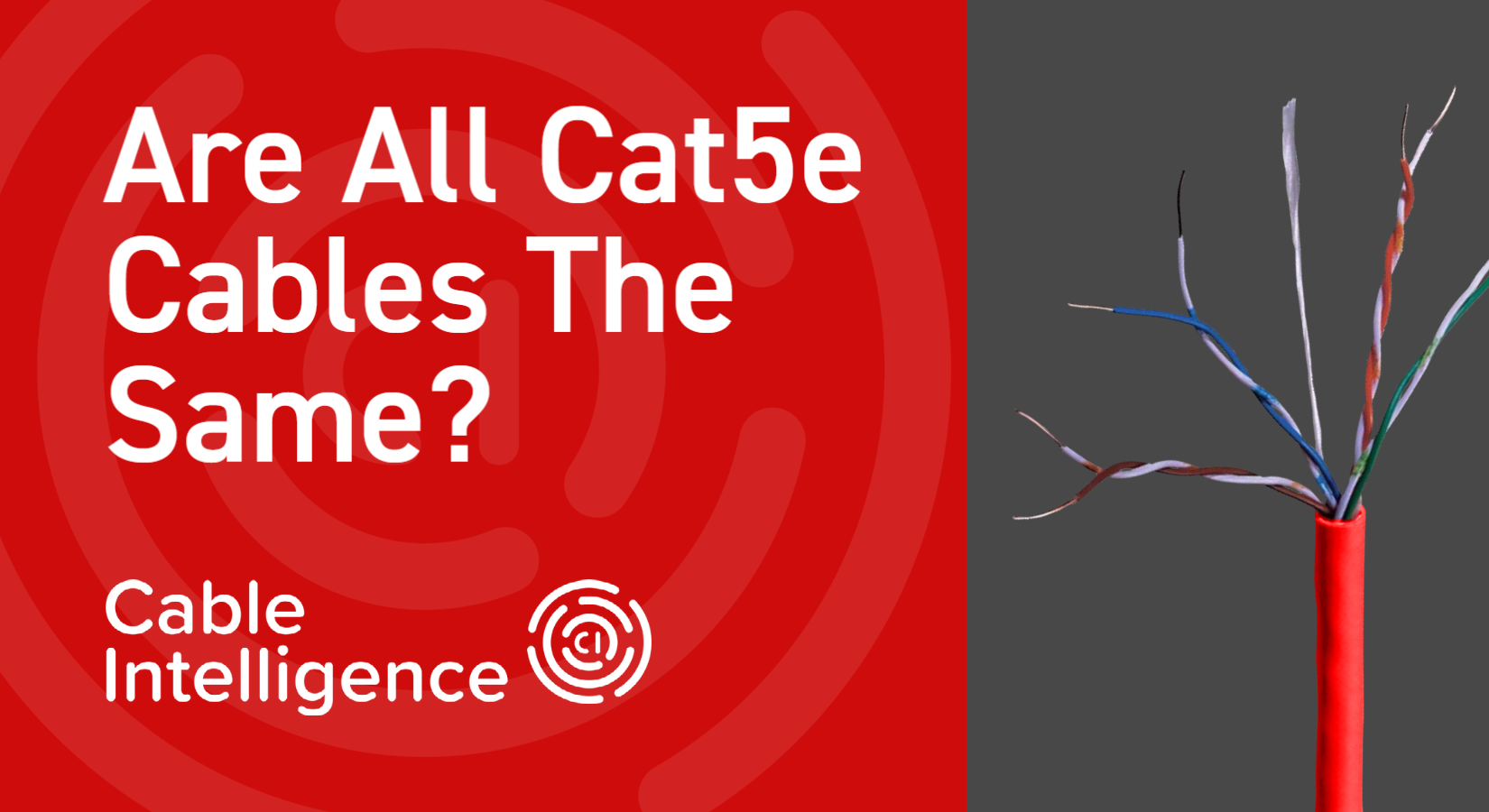In the world of network cabling, you’ll often hear the word ‘Cat’ followed by a number. It’s not referring to fluffy pets – rather, Cat is short for 'category', and the following number is the ‘tier’ or ‘level’ of cable.
As a general rule of thumb, the higher the number, the more data can be transferred down the cable at higher speeds. Generally speaking the Cat5e maximum speed is 1000MB/s or ‘Gigabit’.
In this blog post, we’ll be looking at the differences between Cat5e Bulk Cables (although the same terminology can be applied to Cat5e patch cables) – not all of them are created equal!
Here at Cable Intelligence we only supply premium solutions, which means that you will often find cheap Cat5e cable elsewhere, but read on to find out why cheap doesn’t always mean better.
Solid Copper Vs CCA
As per the Category 5 specification, the cable’s conductors are required to be pure solid copper.
However, this hasn’t stopped some unscrupulous manufacturers from selling something called CCA cable. CCA stands for copper-clad aluminium. Because there is less copper, it’s naturally cheaper to manufacture, meaning it’s cheaper to buy.
CCA conductors are brittle, meaning that they can break easily. As well as this, aluminium oxidizes when it’s exposed to air. Both of these issues mean that there’s a much higher risk of network failures.
So, not only will you have angry customers with networking issues after an install, you could also put yourself at risk of legal action if you install CCA cable, due to its non-compliance with the specification.
CPR Rating
CPR stands for Construction Products Regulation. We’ve written a separate post all about this, but we’ll sum up here by saying that CPR-rated cable has a superior reaction to fire. Common ratings you may see are Euroclass B2ca, Cca (not to be confused with copper-clad aluminium), and Dca.
Some projects require a cable that adheres to these specifications and your average PVC or LSOH cable (a topic we’ll discuss later in this post) won’t cut the mustard. Very cheap Cat5e cable will almost always not be CPR rated.
Insulation
For Cat5e cables, the material used for insulation can vary. Common materials are as follows:
- PE – Polyethelene
- PVC – Polyvinyl Chloride
- LSF – Low Smoke & Fume
- LSOH – Low Smoke Zero Halogen
Generally speaking, aside from CPR-rated cable, the best insulation is LSOH. In the event of a fire, it’s not the flames that kill, but the fumes/smoke. The reaction to fire between PVC and LSOH is huge!
When you see very cheap cable, it’s likely that the insulation is PVC. While there’s no problem with installing it, your customers will thank you if there’s a fire as the loss of life can be devastating. On top of that, you can use LSOH as a selling point when competing for jobs.
Shielding
Ever heard the term ‘Cat5e shielded cable?’. To try to counteract electromagnetic interference, some twisted pair cables incorporate what’s called shielding, which is where a material such as foil is wrapped around either the cable as a whole or the individual pairs within.
The most common types of shielding you’ll encounter when looking at Cat5e cable are as follows (the code before the slash denotes the shielding for the cable itself, while the code after the slash denotes shielding for individual pairs):
U/UTP – No shielding. This essentially does what it says ‘on the tin’ and is common in Cat5e cable.
U/FTP – Individual pairs are shielded, helping prevent crosstalk, but the overall cable is not shielded.
F/UTP, S/UTP – Overall cable is shielded, but individual pairs are unshielded.
F/FTP, S/STP – Both individual pairs and the overall cable is shielded.
In terms of what the letters mean, U stands for ‘Unshielded’, F stands for ‘Foil Shielding’ and S stands for ‘Braided Shielding’.
So there you have it. As you can see, all Cat5e cable is very much not the same.
Buying the cheapest cable will almost always mean that you will be installing non-compliant cable that could not only land you in legal hot water but also lead to loss of life due to poor fire reaction and in some cases, not meet the specification on some construction projects you work on.
Luckily, Cable Intelligence is always on hand to help. Buying from us means that you’ll always get solid copper, and if you have a question about what cable to use in a certain situation, we’ll be happy to advise.

